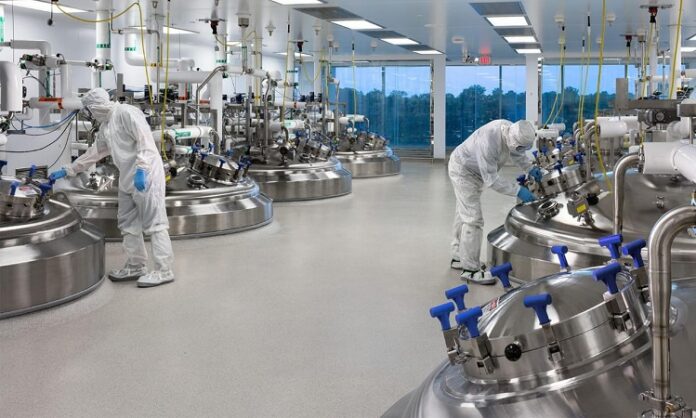New Delhi: The Central Government’s plan to encourage Indian companies for production of bulk drugs or active pharmaceutical ingredients (APIs) by setting up bulk drug parks (BDPs) has failed to take off despite the lapse of two and half years since it was proposed.
The Department of Pharmaceutical under the Ministry of Chemical and Fertilizers had proposed to set up three BDPs in the country with the objective to bring down the cost of manufacturing of APIs by creating the world class common infrastructure facilities (CIF) for the manufacturing firms.
An outlay of ₹3000 crore was proposed to be spent on development of the BDPs in three states during the fiscal 2020-25. As planned, the department was supposed to offer financial assistance up to ₹1000 to each of the three parks, which could be around 90% of the CIF project in hilly regions and 70% in rest of the country. However, not a single penny could be spent on this project, even as only half of the scheduled period for implementation of the scheme is left.
Minister of State for Chemical and Fertilizer Bhagwant Khuba informed the Rajya Sabha that the process of evaluation of the project received from different states was under evaluation.
Under the scheme, financial assistance was to be provided for creation of CIF like development of central effluent treatment plant, solid waste management, storm water drains network, common solvent storage system, solvent recovery and distillation plant, common warehouse, dedicated power sub-station and distribution system with the necessary transformers at factory gate, row, potable and demineralized water, steam generation and distribution system, common cooling system and distribution network, common logistics, advanced laboratory testing centre, suitable for even complex testing/ research needs of APIs, including microbiology laboratory and stability chambers, emergency response centre, safety/hazardous operations audits centre and centre of excellence.
Also Read: Dostarlimab, a magic drug to cure rectal cancer!
The CIFs created under the scheme will help reduce the manufacturing cost of bulk drugs and also enhance the competitiveness of the domestic industry. The creation of BDPs was also intended to make the indigenous pharmaceutical companies cut down their dependence of other countries, including China, for APIs. Most Indian companies heavily rely on China for APIs of paracetamol and antibiotics.
What is bulk drug?
Active Pharmaceutical Ingredients (APIs) are called bulk drugs. These are the main ingredients of a drug or medicine. The bulk drug is the key source to provide therapeutic effects or intended pharmacological activity. The API is mixed with other binding agents or solvents to prepare the finished pharmaceutical product (capsule, syrup, or tablet.)
Criteria of bulk drug park selection
The Department of Pharmaceuticals had stipulated that the BDPs shall not be less than 1000 acres in size for all states, except 7000 acres for hill states. The state was supposed to propose only one site along with its estimated cost, feasibility studies, environmental risk assessment etc. The Project Management Agency (PMA) of the department has been tasked to assess the proposals and forward it to scheme steering committees for approval.
Reasons to promote BDPs
Despite the Indian pharmaceutical industry is the 3rd largest pharmaceutical industry in the world (by volume); it is significantly dependent on the imports of bulk drugs or APIs. According to data mentioned by the Ministry of Chemicals and Fertilizers, in 2018-19, bulk drugs import accounted for 63% of total pharmaceutical imports in the country. Indian pharmaceutical industries had to face a lot of difficulties in producing the required quantum antibiotics paracetamol tablets owing to disruption in imports of APIs during the lockdown period.
Benefits of BDPs to pharma industries
The drug manufacturers will get easy access to world-class CIF, provided under this scheme intends to bring down the manufacturing cost of the bulk drugs. It will promote self-reliance in pharmaceutical manufacturing and can be linked with India’s ambition for AtmaNirbhar Bharat. The BDPs will also increase the competitiveness of the bulk drug industry in India.




